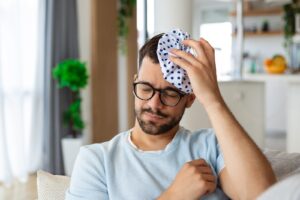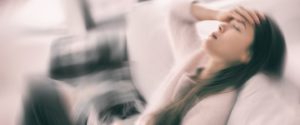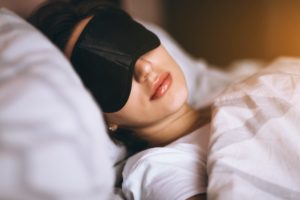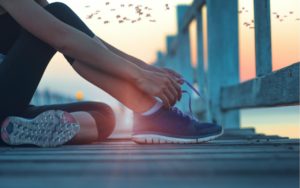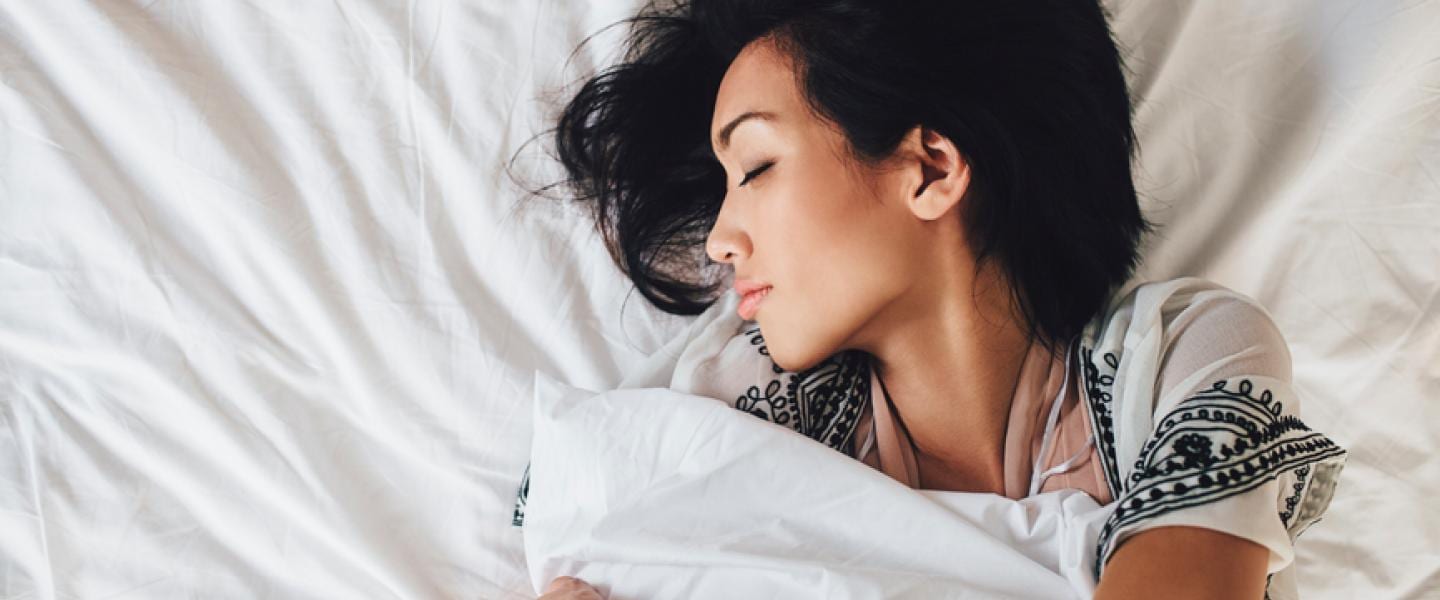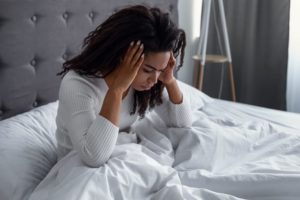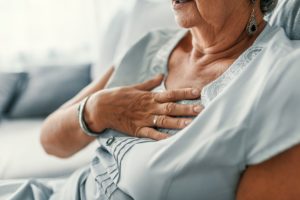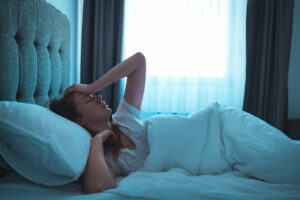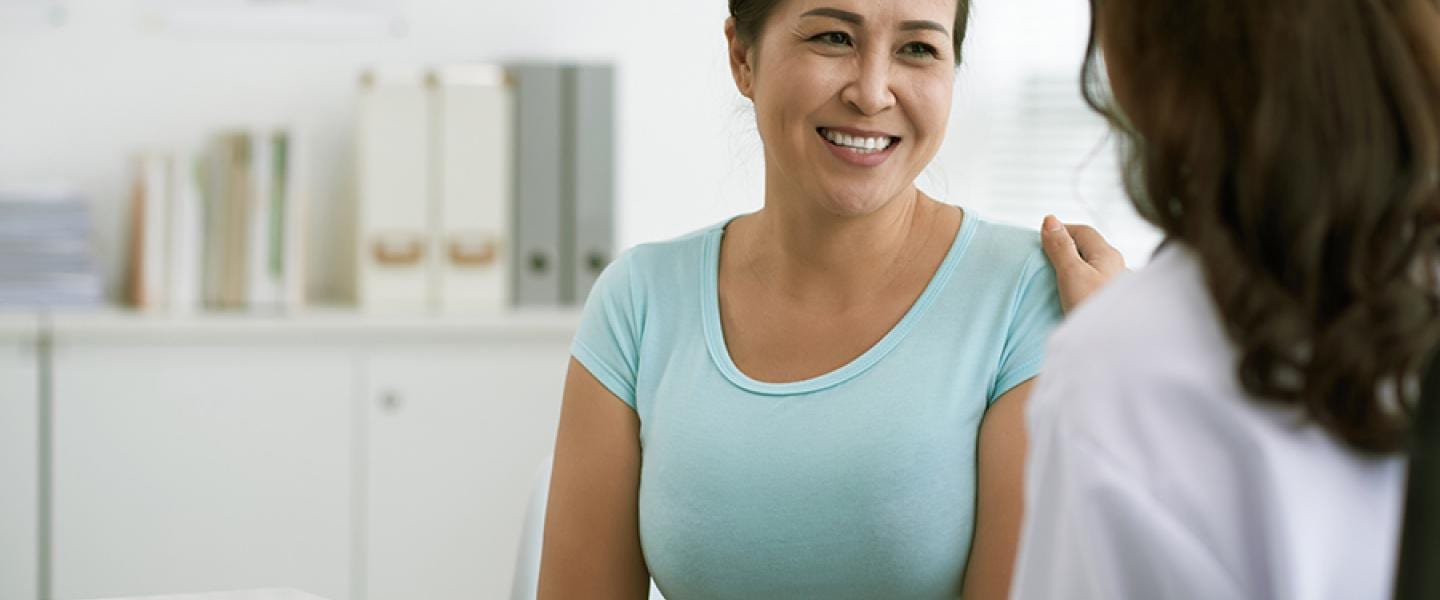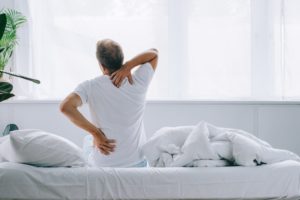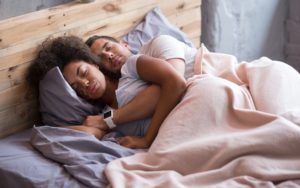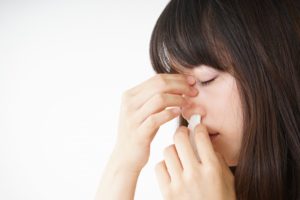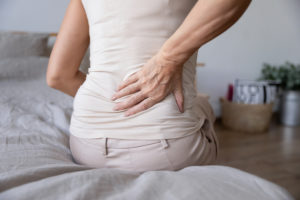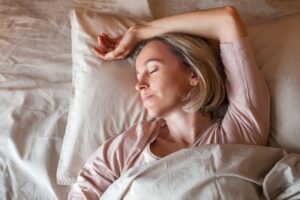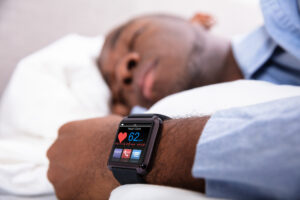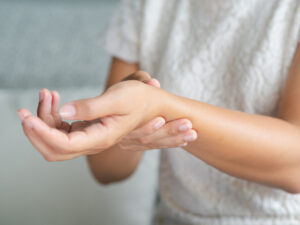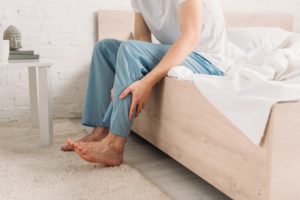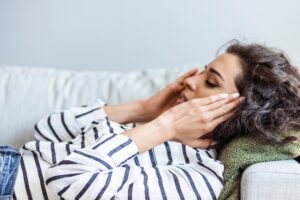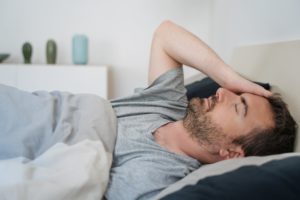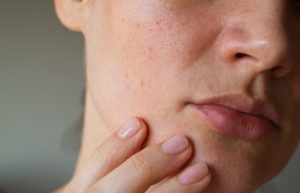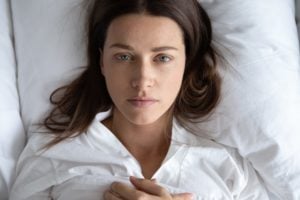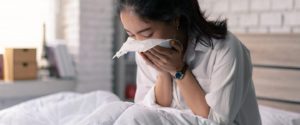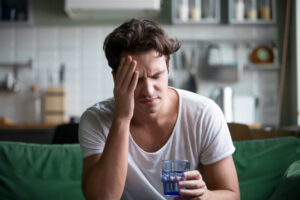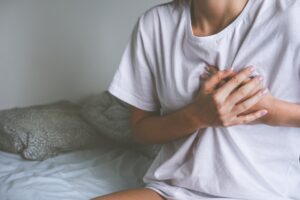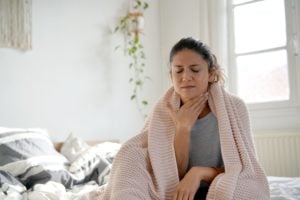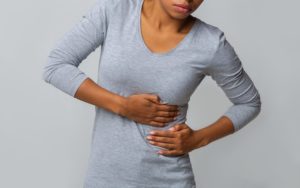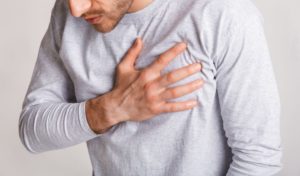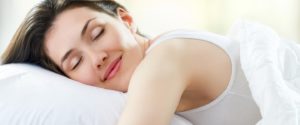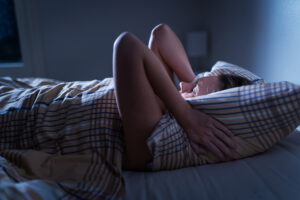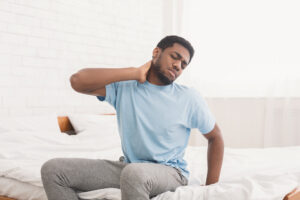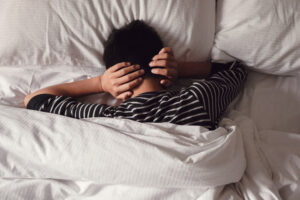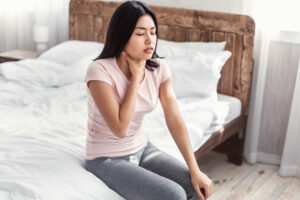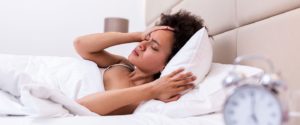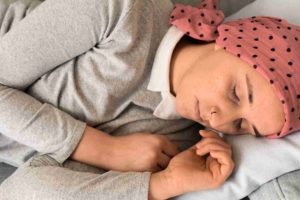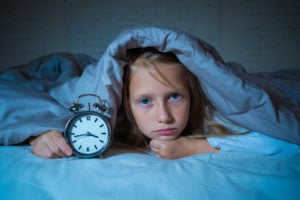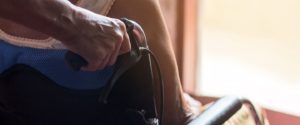Is It Safe To Sleep If You Have a Concussion?
A concussion is a type of mild traumatic brain injury. After a concussion, you might experience symptoms such as dizziness, confusion, headaches, and sleep difficulties.
You might have heard that it is not safe to sleep with a concussion, or that you should be woken every few hours while you are recovering. We explore how concussions affect sleep, and how to sleep better so you can recover faster.
Is it Safe to Sleep With a Concussion?
Generally, both adults and children can safely sleep after a concussion, once they have visited their doctor or an emergency room.
Although sleeping after a concussion is considered safe, it is more difficult to assess a person’s symptoms when they are asleep. For the first few nights, healthcare professionals may advise family members to wake up the concussed person every few hours. They can conduct simple tests by asking easy questions, watching for unusual behavior, and shining a light to see if the pupils are the same size and responsive to light. These tests are designed to alert caregivers of any worrying developments.
However, waking someone up every few hours can disrupt sleep, and sleep is extremely important while recovering from a concussion. Depending on the severity of your concussion, your doctor may advise an adult family member to stay with you while you sleep, but not wake you up.
How Do Concussions Affect Sleep?
Sleep disturbances following a concussion may differ from person to person, and they do not always indicate the severity or type of concussion . Approximately 30% to 80% of people develop some kind of sleep problems after a concussion.
It’s common to feel very sleepy and take extra naps the first week after a concussion , then have trouble sleeping in the following weeks. You may continue to feel tired during the day if you are having trouble falling asleep at night or waking up early and unable to get back to sleep. Daytime sleepiness after a concussion might also be due to a problem with the mechanisms that regulate your sleep-wake cycle, leading you to feel sleepy at unusual times. You may find your sleep schedule becomes more erratic.
Concussion-related sleep disturbances may directly result from damage to the neurons that control the sleep-wake cycle. Researchers have also found that after a concussion, some people spend more time in restorative deep sleep yet produce lower amounts of melatonin, the sleep hormone .
You are more likely to experience sleep problems following a concussion if you have had a concussion in the past . Children may be especially sensitive to sleep problems after a concussion, as their brains are still developing.
After a concussion, some people develop sleep disorders such as insomnia, circadian rhythm disorders, and sleep apnea. It is common for people with a concussion to have the feeling that they are half-awake all night , or to toss and turn due to headaches or chronic pain.
Though symptoms change over time, insomnia may last for more than a year after your concussion, especially if you do not give yourself a chance to heal before returning to work or school. Being unable to sleep deeply may interfere with recovery.

Why Is Sleeping After a Concussion Important?
Addressing sleep problems during concussion recovery is very important, because sleep is a crucial part of the recovery process.
Research indicates that those who wake up more during the night experience concussion symptoms for longer . People who have trouble sleeping due to multiple concussions are also more likely to experience strong headaches and problems with mood and thinking. One study of concussions in children under 18 found that those who slept poorly had more severe symptoms and took more than two additional weeks to recover, compared to those who slept well.
Signs You May Have a Concussion
Concussion symptoms vary, and you can have a concussion even if you do not lose consciousness. Common symptoms of a concussion include:
- Mood swings
- Confusion
- Memory loss
- Difficulty concentrating
- Headache
- Dizziness
- Balance troubles
- Vision problems
Concussion symptoms specific to sleep include:
- Feeling sleepy during the day
- Trouble falling asleep at night
- Not sleeping as much as usual
- Sleeping more than you usually do
These symptoms might not show up right away. If you suspect you might have a concussion, it is very important to seek medical help, rest, and avoid activities that could cause another concussion before you are healed. People with more serious symptoms, such as seizures, vomiting, trouble staying conscious, a severe headache, an unusually aggressive attitude, or tingling sensations or weakness in the limbs, should visit the emergency room .
Tips to Sleep Better With a Concussion
Adopting smart sleep hygiene practices can pave the way for better sleep when recovering from a concussion. Sleep hygiene tips include:
- Avoid caffeine, nicotine, and alcohol.
- Stay on a regular sleep-wake schedule.
- Incorporate relaxing activities into your bedtime routine.
- Keep the bedroom cool, dark, and quiet.
- Store electronics and other distractions out of the bedroom.
- Avoid looking at bright screens in the leadup to bedtime.
- If you have not fallen asleep after 20 minutes, get out of bed and do a calming activity in another room until you feel sleepy.
Frequent napping may be appropriate in the weeks immediately following a concussion, as long as it does not interfere with nighttime sleep. Talk to your doctor about balancing sleep with a gradual return to activities after resting for three to five days after a concussion. As you start to feel better, light exercise, such as walking, may improve your sleep and mood.
When to Contact Your Doctor
If you have concussion symptoms after experiencing an injury, see a doctor as soon as possible. Seeking medical attention is especially important if you develop a stiff neck, problems with consciousness, a worsening headache that will not go away, repeated vomiting, problems with speech or movement, weakness, confusion, seizures, double vision, unusual behavior, or fluids leaking from the ears or nose.
You should also talk to your doctor if your symptoms get worse, or if you do not feel completely recovered after a week following the concussion. Most people see a major improvement in symptoms within ten days to a month, though it is not uncommon to have lingering symptoms that last for months.

Still have questions? Ask our community!
Join our Sleep Care Community — a trusted hub of sleep health professionals, product specialists, and people just like you. Whether you need expert sleep advice for your insomnia or you’re searching for the perfect mattress, we’ve got you covered. Get personalized guidance from the experts who know sleep best.
References
15 Sources
-
A.D.A.M. Medical Encyclopedia. (2020, June 23). Concussion in adults – discharge. MedlinePlus., Retrieved August 13, 2021, from
https://medlineplus.gov/ency/patientinstructions/000126.htm -
A.D.A.M. Medical Encyclopedia. (2020, August 2). Concussion in children – discharge. MedlinePlus., Retrieved August 13, 2021, from
https://medlineplus.gov/ency/patientinstructions/000125.htm -
Morse, A. M., & Kothare, S. V. (2018). Sleep disorders and concussion. Handbook of Clinical Neurology, 158, 127–134.
https://pubmed.ncbi.nlm.nih.gov/30482340/ -
Raikes, A. C., & Schaefer, S. Y. (2016). Sleep quantity and quality during acute concussion: A pilot study. Sleep, 39(12), 2141–2147.
https://pubmed.ncbi.nlm.nih.gov/27748242/ -
Mosti, C., Spiers, M. V., & Kloss, J. D. (2016). A practical guide to evaluating sleep disturbance in concussion patients. Neurology. Clinical Practice, 6(2), 129–137.
https://pubmed.ncbi.nlm.nih.gov/29377030/ -
Shekleton, J. A., Parcell, D. L., Redman, J. R., Phipps-Nelson, J., Ponsford, J. L., & Rajaratnam, S. M. (2010). Sleep disturbance and melatonin levels following traumatic brain injury. Neurology, 74(21), 1732–1738.
https://pubmed.ncbi.nlm.nih.gov/20498441/ -
Oyegbile, T. O., Dougherty, A., Tanveer, S., Zecavati, N., & Delasobera, B. E. (2020). High sleep disturbance and longer concussion duration in repeat concussions. Behavioral Sleep Medicine, 18(2), 241–248.
https://pubmed.ncbi.nlm.nih.gov/30784317/ -
Wiseman-Hakes, C., Gosselin, N., Sharma, B., Langer, L., & Gagnon, I. (2019). A longitudinal investigation of sleep and daytime wakefulness in children and youth with concussion. ASN Neuro, 11, 1759091418822405.
https://pubmed.ncbi.nlm.nih.gov/30806074/ -
Lavigne, G., Khoury, S., Chauny, J. M., & Desautels, A. (2015). Pain and sleep in post-concussion/mild traumatic brain injury. Pain, 156 Suppl 1, S75–S85.
https://pubmed.ncbi.nlm.nih.gov/25789439/ -
Hoffman, N. L., O’Connor, P. J., Schmidt, M. D., Lynall, R. C., & Schmidt, J. D. (2020). Relationships between post-concussion sleep and symptom recovery: A preliminary study. Journal of Neurotrauma, 37(8), 1029–1036.
https://pubmed.ncbi.nlm.nih.gov/31774024/ -
Chung, J. S., Zynda, A. J., Didehbani, N., Hicks, C., Hynan, L. S., Miller, S. M., Bell, K. R., & Cullum, C. M. (2019). Association between sleep quality and recovery following sport-related concussion in pediatrics. Journal of Child Neurology, 34(11), 639–645.
https://pubmed.ncbi.nlm.nih.gov/31113274/ -
Halstead, M. E., Walter, K. D., Moffatt, K., & COUNCIL ON SPORTS MEDICINE AND FITNESS (2018). Sport-related concussion in children and adolescents. Pediatrics, 142(6), e20183074.
https://pubmed.ncbi.nlm.nih.gov/30420472/ -
Harmon, K. G., Drezner, J. A., Gammons, M., Guskiewicz, K. M., Halstead, M., Herring, S. A., Kutcher, J. S., Pana, A., Putukian, M., & Roberts, W. O. (2013). American Medical Society for Sports Medicine position statement: Concussion in sport. British Journal of Sports Medicine, 47(1), 15–26.
https://pubmed.ncbi.nlm.nih.gov/23243113/ -
MedlinePlus: National Library of Medicine (US). (2014, April 14). Healthy Sleep., Retrieved August 13, 2021, from
https://medlineplus.gov/healthysleep.html -
Stillman, A., Alexander, M., Mannix, R., Madigan, N., Pascual-Leone, A., & Meehan, W. P. (2017). Concussion: Evaluation and management. Cleveland Clinic Journal of Medicine, 84(8), 623–630.
https://pubmed.ncbi.nlm.nih.gov/28806161/


